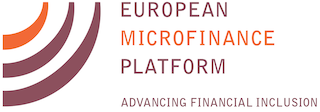 At the opening plenary of European Microfinance Week, where over 500 attendees are gathering now in-person and online, Tidhar Wald of the UN’s Better Than Cash Alliance noted that over 1 billion more people worldwide have achieved financial inclusion over the past decade. While this has helped some to boost their livelihoods, many have accessed financial services via digital services, which carry different risks than in-person services. Data protection is an obvious example, as more client data is being digitized, and fraud is on the rise. Other risks, even though well-known to providers of in-person financial services, require different
At the opening plenary of European Microfinance Week, where over 500 attendees are gathering now in-person and online, Tidhar Wald of the UN’s Better Than Cash Alliance noted that over 1 billion more people worldwide have achieved financial inclusion over the past decade. While this has helped some to boost their livelihoods, many have accessed financial services via digital services, which carry different risks than in-person services. Data protection is an obvious example, as more client data is being digitized, and fraud is on the rise. Other risks, even though well-known to providers of in-person financial services, require different
Tag: DFS
MICROFINANCE PAPER WRAP-UP: “Translating Digital Credit Transaction Data Into Consumer Protection Supervision,” by Daniel Putman, Published by Innovations for Poverty Action
 The adoption of digital financial services (DFS) has increased significantly in lower- and middle-income countries in recent years, specifically the usage of digital credit via mobile phone messaging, mobile apps and web browsers. Among the benefits of digital loans is the
The adoption of digital financial services (DFS) has increased significantly in lower- and middle-income countries in recent years, specifically the usage of digital credit via mobile phone messaging, mobile apps and web browsers. Among the benefits of digital loans is the
MICROFINANCE PAPER WRAP-UP: “Measuring Fees and Transparency in Nigeria’s Digital Financial Services,” by William Blackmon and Brian Mwesigwa, Published by Innovations for Poverty Action
 Digital financial services have evolved greatly in Nigeria over the last decade, but many people in the country still struggle to access formal financial services. This study explores three issues discouraging
Digital financial services have evolved greatly in Nigeria over the last decade, but many people in the country still struggle to access formal financial services. This study explores three issues discouraging
MICROFINANCE PAPER WRAP-UP: “Innovating Digital Financial Services for Posts,” Published by Universal Postal Union
 Of the 5.4 billion adults worldwide, 1.5 billion access financial services through post offices. Postal services have large networks of branch locations that give them the potential to reach even more underserved populations. The extent of these branch networks is so wide because
Of the 5.4 billion adults worldwide, 1.5 billion access financial services through post offices. Postal services have large networks of branch locations that give them the potential to reach even more underserved populations. The extent of these branch networks is so wide because
MICROFINANCE PAPER WRAP-UP: “Enabling Women’s Financial Inclusion Through Digital Financial Literacy,” by Catherine Highet, Published by FinEquity
In  this paper, Catherine Highet evaluated the gender gap in digital financial literacy (DFL) and identified related enabling and constraining factors in various countries including Bangladesh, Cambodia and Ghana. The enabling factors include
this paper, Catherine Highet evaluated the gender gap in digital financial literacy (DFL) and identified related enabling and constraining factors in various countries including Bangladesh, Cambodia and Ghana. The enabling factors include
